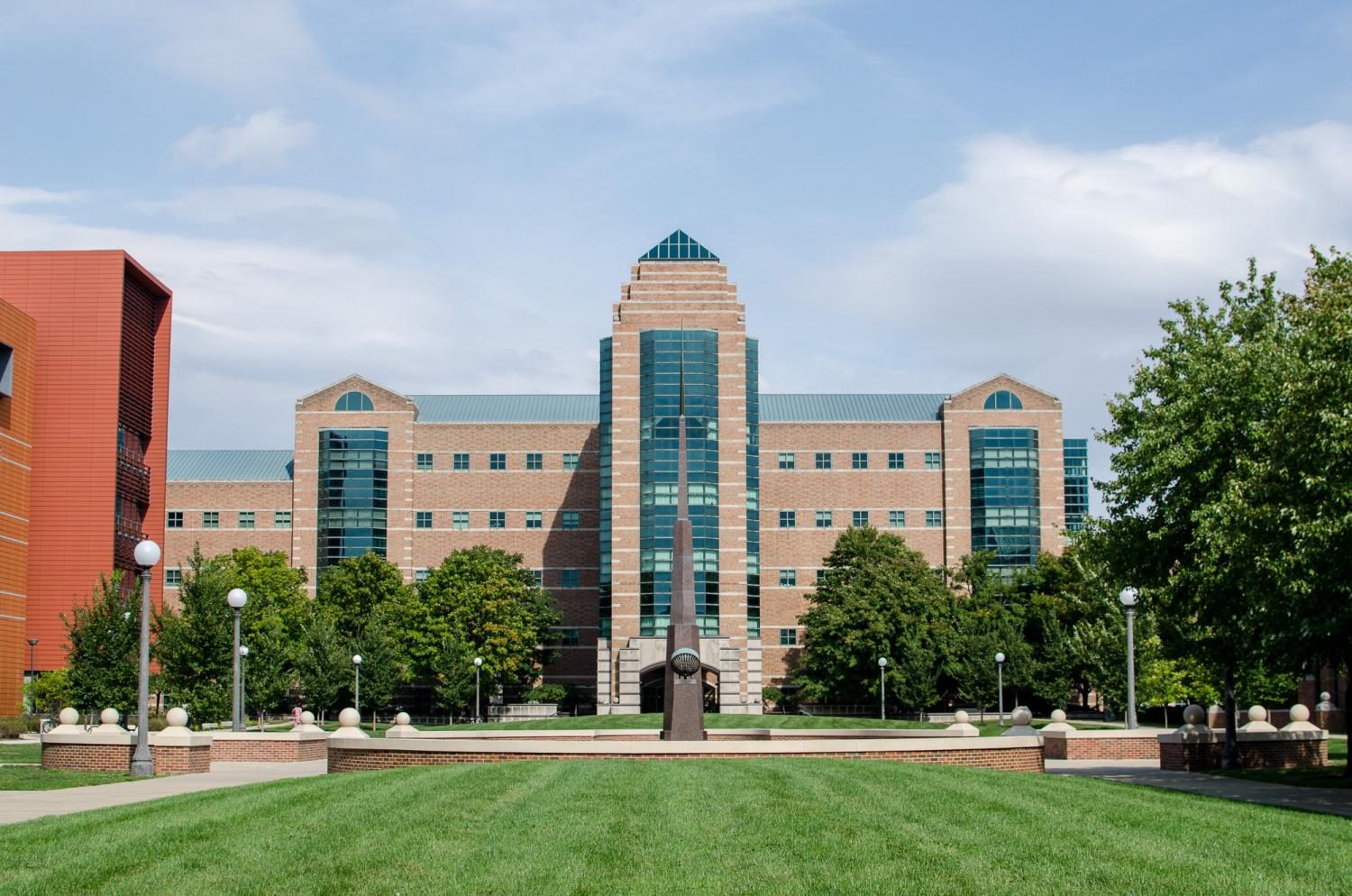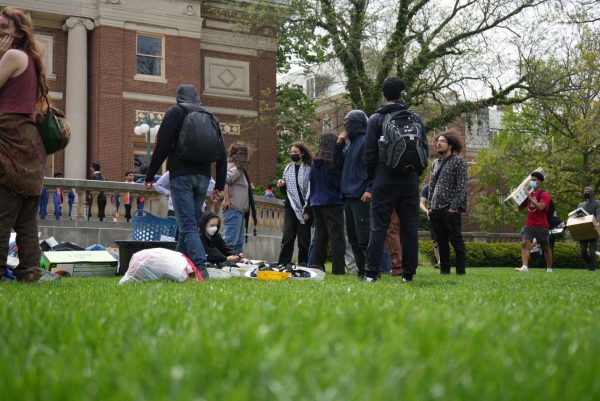Brain tissue structure possibly explains correlation between fitness and memory
The Beckman Institute is located at 405 N Mathews Ave. in Urbana. The mayors of Champaign and Urbana, along with the village president of Savoy will announce Oct. 2 as Beckman Institute day to celebrate it’s 30th anniversary.
May 2, 2017
A new study at the University found that the key to the correlation between fitness and memory could be the microstructure of the hippocampus, a region of the brain that is important for the formation and retrieval of memories and, more specifically, supports relational memory function.
Aron Barbey, professor in psychology and neuroscience, leads a group of researchers at the Beckman Institute of Advanced Science and Technology that used a specialized MRI technique to measure the structural integrity of hippocampus in healthy young adults.
The results were then correlated with fitness and memory tests.
“We evaluated the relationship between aerobic fitness, hippocampal microstructure and memory performance among healthy young adults,” Hillary Schwarb, postdoctoral research associate at the Beckman Institute, said in an email.
The study found that viscoelasticity, a measure of structural integrity in brain tissue, has a much stronger correlation to fitness and memory as compared to the size of the hippocampus.
Get The Daily Illini in your inbox!
Studies in developing children and older adults found strong correlations between the size of the hippocampus and memory. However, size does not matter as much in healthy young adults.
“Previous work with both children and also older adults has shown that individuals who are more fit have larger hippocampi and, in turn, perform better on memory tasks,” Schwarb said. “Among healthy young adults, however, the size of the hippocampus is relatively stable and not typically related to memory performance.”
The study found that participants with higher fitness levels have more elastic tissue in the hippocampus, which is associated with better memory.
This study highlights the importance of physical health to cognitive health,” Schwarb said. “These data demonstrate that there is a meaningful relationship between an individual’s fitness level and the microstructural integrity of their hippocampus which impacts their memory abilities.”
Future work is necessary to evaluate whether or not changing aerobic fitness will cause a change in hippocampal microstructural abilities and memory performance, but these data suggest that this is possible.







